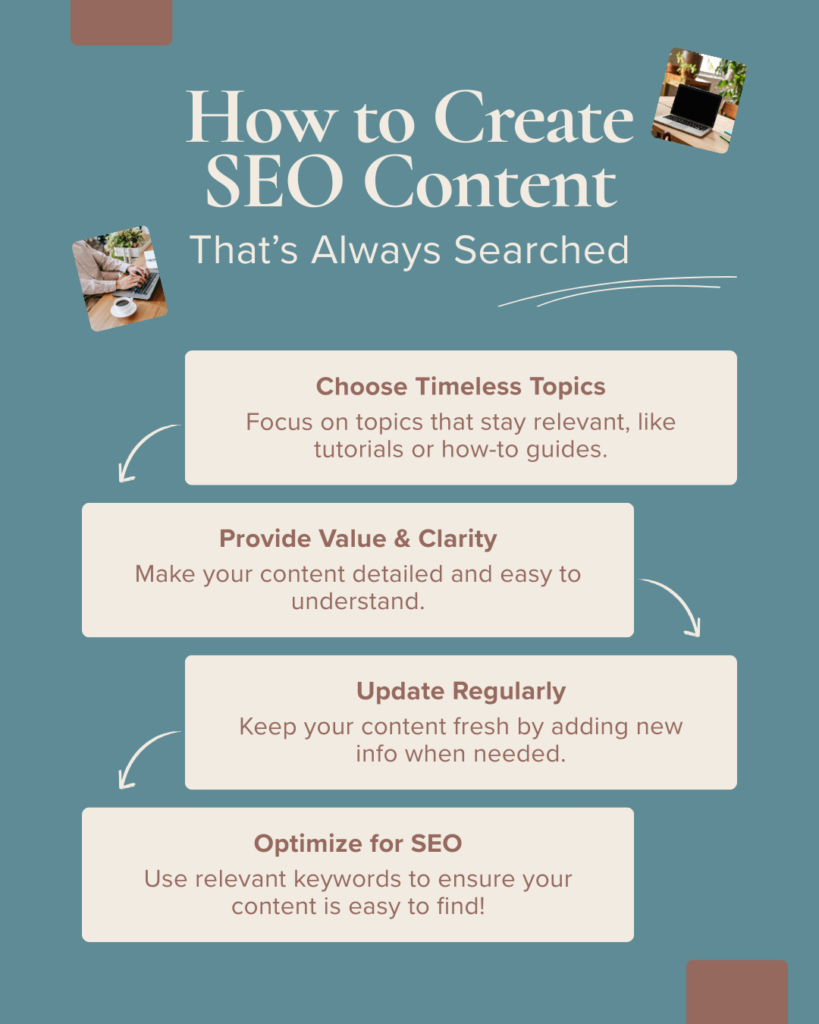The SEO landscape constantly evolves, and AI-generated content has become a major player in content creation. As Google’s algorithms become smarter, many marketers wonder: Will AI content still work for SEO in 2025?
The short answer is yes, but with few restrictions, AI-generated content can rank well if used correctly. In this post, we’ll explore what’s changed, what still works, and how AI can succeed in SEO in 2025.
What is Google’s Point of View on SEO content in 2025?
Since Google’s 2022 announcement that AI content is acceptable as long as it’s helpful and high-quality, not much has changed in principle. However, Google’s algorithms (now powered by even more advanced AI, like Gemini and beyond) are better at detecting:
- Low-quality, spammy AI content (thin, repetitive, or unoriginal)
- Content lacking E-E-A-T (Experience, Expertise, Authoritativeness, Trustworthiness)
- AI-generated content without human oversight (factual errors, poor readability)
What Still Works in 2025 regarding SEO?
AI-Assisted Content (Not Fully Automated)
- AI helps with research, outlines, and drafts, but humans refine it for accuracy and depth.
- Tools like ChatGPT-5, Claude 3, and Gemini Advanced are great for ideation but should not replace human editing.
High-Quality, Long-Form Content
- Google still favors comprehensive, well-researched articles (2,000+ words).
- AI can help structure content, but adding unique insights, case studies, and expert opinions is crucial.
Semantic SEO & Natural Language Processing (NLP)
- Search engines now better understand context and user intent.
- AI tools (like SurferSEO, Clearscope) help optimize for semantic keywords and related terms.
Personalization & User Experience (UX)
- AI can tailor content for different audiences (e.g., dynamic meta descriptions, personalized recommendations).
- Engagement metrics (time on page, low bounce rate) still matter—AI content must be engaging.
Multimodal Content (Beyond Text)
- AI helps generate videos, infographics, and interactive content—key for SEO in 2025.
- Google rewards pages with mixed media (images, videos, audio snippets).
AI Generated Content and SEO in 2025
So, what aspects of AI-generated content can still be leveraged effectively for SEO in 2025? Let’s dive in:
Augmenting Human Creativity and Efficiency
In 2025, the most successful use of AI in content creation for SEO lies in its ability to assist and enhance human efforts, rather than completely replace them. Think of AI as a powerful co-pilot:
- Idea Generation: AI tools can analyze vast amounts of data to identify trending topics, popular questions, and content gaps within your niche. This can spark inspiration for human writers.
- Keyword Research Assistance: AI can help identify long-tail keywords and related terms that might be missed through traditional methods, informing content briefs for human creators.
- Outline Creation: AI can generate initial drafts of content outlines, providing a structured framework for human writers to build upon.
- Data Analysis and Summarization: AI can quickly analyze research papers, industry reports, or large datasets, extracting key insights that human writers can then weave into their content with context and analysis.
- Grammar and Style Checks: AI-powered tools offer advanced grammar and style checking, ensuring content is polished and professional before publication.
- Translation and Localization: AI can facilitate the translation of high-quality human-written content into multiple languages, expanding reach to global audiences. However, human review for nuance and cultural context remains crucial.
Example: Instead of staring at a blank page, a human blogger could use an AI tool to generate a list of potential subtopics for a blog post on “Sustainable Gardening in Urban Environments.” The blogger then uses their expertise and personal voice to develop each subtopic into engaging and informative content.

Creating Specific, Factual Content
AI excels at processing and presenting factual information in a structured format. This makes it useful for creating certain types of SEO-friendly content:
- Product Descriptions: AI can generate consistent and informative product descriptions based on provided specifications, freeing up human copywriters for more creative tasks. However, ensuring the descriptions are engaging and highlight unique selling points often requires human input.
- FAQ Sections: AI can quickly generate answers to common questions based on existing website content or provided data, improving user experience and potentially capturing featured snippets.
- Glossary Definitions: AI can create concise and accurate definitions for industry-specific terms, enhancing the informational value of your website.
- Data-Driven Reports: AI can assist in generating reports based on collected data, such as website analytics or sales figures. Human analysis and interpretation are essential to make these reports insightful.
Example: An e-commerce website selling electronics could use AI to generate basic specifications and features for hundreds of product pages. However, a human copywriter would then add compelling descriptions that highlight the benefits and emotional appeal of each product.
Optimizing Existing Content
AI can play a valuable role in analyzing and optimizing existing human-written content for better SEO performance:
- Identifying Keyword Opportunities: AI can scan existing content and suggest relevant keywords to incorporate naturally.
- Analyzing Readability and Engagement: AI tools can assess the readability and potential engagement level of your content, suggesting improvements to sentence structure and flow.
- Identifying Content Gaps: AI can compare your content to top-ranking pages for target keywords and highlight areas where your content might be lacking.
Example: A website owner could use an AI tool to analyze their top-performing blog posts and identify opportunities to incorporate related keywords or improve the overall readability to capture a wider audience.
Hybrid Approach
In 2025, the most successful SEO strategies will likely involve a hybrid approach to content creation. This means leveraging the efficiency and data processing capabilities of AI while ensuring that all published content is:
- Human-authored or heavily edited by humans: To inject originality, expertise, and a unique voice.
- Focused on providing genuine value to the user: Answering their questions, solving their problems, or entertaining them in a meaningful way.
- Optimized for search engines: Incorporating relevant keywords naturally and adhering to SEO best practices.
- Aligned with E-E-A-T guidelines: Demonstrating expertise, authoritativeness, and trustworthiness where necessary.
What Doesn’t Work Anymore (or Never Did Effectively) regarding SEO
- Low-Quality, Spun Content: Search engines are highly skilled at identifying and penalizing content that is simply a rehash of existing information or poorly generated by AI without genuine value.
- Content Lacking Originality and Expertise: AI-generated content often struggles to provide unique insights, personal experiences, or the depth of understanding that comes from human expertise. This is crucial for ranking in competitive niches.
- Content That Doesn’t Meet E-E-A-T Guidelines: Google’s emphasis on Expertise, Authoritativeness, and Trustworthiness (E-E-A-T) means that content, especially in “Your Money or Your Life” (YMYL) niches, needs to be created by individuals or entities with demonstrable expertise. AI alone cannot fulfill these requirements.
- Content That Isn’t Human-Centric: Ultimately, search engines aim to provide users with helpful and engaging content. AI-generated content that lacks a human touch, empathy, or understanding of user intent is unlikely to perform well.
Wrap up
AI-generated content is a powerful tool that can significantly enhance content creation workflows and provide valuable assistance in various SEO tasks in 2025. However, it is not a magic bullet. To achieve sustainable SEO success, the human element remains indispensable. By strategically integrating AI to augment human creativity and expertise, businesses can create high-quality, engaging content that resonates with both users and search engines. The future of SEO content is not about AI versus humans, but rather about AI and humans working together to create truly exceptional online experiences.

